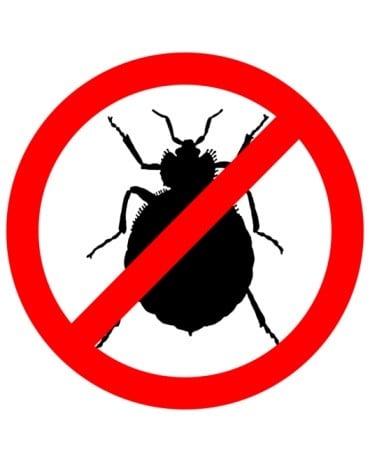 Bed bug infestations have been rising at alarming rates across the nation. In hotels, houses, and apartments there are hardly any places where people sleep that are immune to the effects of these parasitic insects. Unfortunately, if you're a rental property manager of any kind there’s a high chance that you’ll have to deal with the reality of these unwelcome pests. So, it’s time to prepare yourself for that moment when you come face to face with these nasty insects.
Bed bug infestations have been rising at alarming rates across the nation. In hotels, houses, and apartments there are hardly any places where people sleep that are immune to the effects of these parasitic insects. Unfortunately, if you're a rental property manager of any kind there’s a high chance that you’ll have to deal with the reality of these unwelcome pests. So, it’s time to prepare yourself for that moment when you come face to face with these nasty insects.
Bed Bugs Have Been Around for Years
Although bed bugs have spread rapidly over the past few years, the insects have been biting people for centuries. After 1940 the problem nearly vanished in the U.S. and other developed countries, but the bugs have built up an immunity to the pesticides that previously eradicated them. That, coupled with strict government regulations banning some of these effective treatments, as well as international travel, we are now facing a massive outbreak.
An Ounce of Prevention
Like so many other problems, it’s important to address the issue before it even comes up. New legislation in California starting January 1, 2017 is going to require all property managers to include a notice to residents regarding identification, behavior, and the biology of bed bugs. This is not a bad idea.
Years ago, The Hignell Companies started including a bed bugs addendum to all of its leases that goes over four main things concerning bed bugs.
- Best practices for good housekeeping and preventative measures to stop bed bugs before they start.
- Mandatory reporting of any bed bug problems.
- Mandatory cooperation with pest control efforts.
- In the case of negligence of the resident or guests they hold the owner/agent harmless from any claims.
This notice raises awareness and sets the precedent if/when an outbreak happens.
Knowledge is power
A great tactic rental property managers can employ is informing all our residents about the nature of bed bugs before moving into their unit. When you have informed tenants the chances of getting an outbreak are mitigated. Here are some key facts that we share with residents about how bed bugs work and how to take preventative measures.
- While the presence of bed bugs is not always related to personal cleanliness or housekeeping, good housekeeping will help control the problem by identifying bed bugs, minimizing an infestation, and limiting its spread.
- Bed bugs are by nature hitchhikers. If you stay in a hotel or travel, inspect your clothing and belongings for signs of bed bugs before settling back into your apartment. On the flip side, if you have guests staying with you, after they leave inspect the beds, bedding, and furniture for stowaways.
- Vacuum and dust regularly, particularly in the bedroom, being especially thorough around and under the bed, drapes, and furniture. While cleaning, look for signs of bed bugs.
- If possible, keep furniture several inches away from walls. Bed bugs can jump as far as three inches and hide in these dark areas.
- Never take discarded items from a curbside. That couch may look clean sitting out on the sidewalk, but don’t do it! Also, inspect all furniture and appliances that you purchase second hand.
These are just a few best practices to help mitigate the risk of an infestation of bed bugs.
We have bed bugs, now what?
Even with well-informed tenants and precautionary measures in place, you may still face an infestation of bed bugs. What do you do now?
- Act immediately! Don’t wait – infestations can spread to multiple units and that is the last thing you want. Also, by law starting January 2017, you must respond in a reasonable amount of time. This should be common sense.
- Treat the apartment with a professional pest control company. There are a couple of treatment options. One is a heat treatment that kills bed bugs by heating their bodies up over 122 degrees. During this treatment the air in the apartment will need to be around 135 to 145 degrees. Make sure the resident takes any items out that will be damaged in the heat. After this treatment, a company will also recommend a residual treatment around the property to keep these pests out. There are also spray treatments that uses chemicals as opposed to heat. It’s your call as to which one will best fit your needs.
- By law you need to leave behind a written report of the pest control actions for the tenant. The tenant must receive the report within two days.
- Typically, the property owner will pay for the treatment, but this is not cut and dry. Obviously, it was the tenant or a guest that brought in the bed bugs, but it can be hard to prove. If the tenants move in to a clean unit and within a couple weeks have an outbreak you can make a good case it was their doing and they need to pay for treatment. If you do a treatment and then the next month they have an outbreak, and the next month, etc. someone who is staying with them could be bringing in the bugs. This would be a good time to make sure they don’t have people living in the unit who aren’t on the lease. In any event, it’s not always the owner that will be on the hook for the treatment bill.
Overall, in the past few years we have made a lot of strides in fighting bed bugs, but the war is not done. As the problem persists, pest control vendors are becoming more and more efficient in dealing with the problem. Hopefully, with enough attention fighting these parasitic blood-suckers, rental property managers will prevail to have a bed-bug-free society again. Until then, continue to be informed and fight the good fight against bed bugs!
For more info on bed bugs or other property management needs, please contact us at The Hignell Companies.










